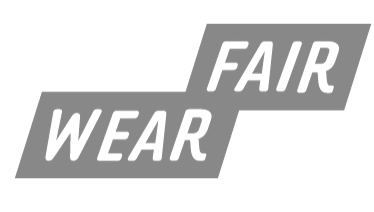What is the Fair Wear certificate in personalised clothing?
Discover what the Fair Wear Certificate is and why you should take it into account
In the world of fashion, ethics and sustainability have become two fundamental pillars when making choices. Nowadays, there are many certifications that seek to promote fair and responsible practices in the textile industry, and the Fair Wear Certificate stands out as a seal of commitment to ethical working conditions. In this article, we explain what the Fair Wear Certificate is in the context of clothing and why it should be an essential criterion when choosing our garments.
What is the Fair Wear Certificate?
The Fair Wear Certificate is not just a label; it is a tangible commitment to continuous improvement in terms of working conditions throughout the supply chain. Brands, like Garment Printing, that seek and obtain this certificate undergo rigorous audits and assessments to ensure they meet the ethical standards set by the Fair Wear Foundation.

Labor rights and fair wages thanks to the Fair Wear certificate
One of the most crucial aspects addressed by the Fair Wear Certificate is the guarantee of labor rights and fair wages. This implies that workers involved in the production of clothing have safe working conditions, fair working hours, and receive adequate compensation for their work. By choosing garments with this certificate, consumers contribute to a positive change in the lives of textile industry workers.
Transparency in the supply chain
A distinctive feature of the Fair Wear Certificate is its focus on transparency. Brands that possess it commit to providing detailed information about their supply chain, from the acquisition of materials to the final production. This allows consumers to trace the origin of their garments and make informed decisions about their purchases.
Environmental sustainability
Sustainability is not limited to people; it also encompasses the environmental impact of production. Brands with the Fair Wear Certificate seek to reduce their ecological footprint by minimizing the use of natural resources, controlling emissions, and adopting environmentally responsible manufacturing practices.
The role of certification in consumer choice
By choosing clothing with the Fair Wear Certificate, consumers become agents of change. They actively support brands that prioritize ethics and sustainability while sending a clear message to the industry that social responsibility is essential in contemporary fashion.
Trends change rapidly, and the Fair Wear Certificate represents a lasting commitment to core values. As consumers become more aware of the ethical and environmental implications of their fashion choices, the demand for ethical clothing is expected to continue growing, encouraging more brands to adopt ethical standards and obtain the Fair Wear Certificate.
The choice of clothing goes beyond aesthetics; it is a statement of values. Opting for custom clothing with the Fair Wear Certificate means dressing with purpose. It is a conscious act of supporting fair labor practices and environmental sustainability. Ultimately, ethical fashion is not just a trend; it is a movement towards a future where each garment tells a story of equity and responsibility. Dressing consciously is more than a style choice; it is a commitment to positive change in the textile industry.